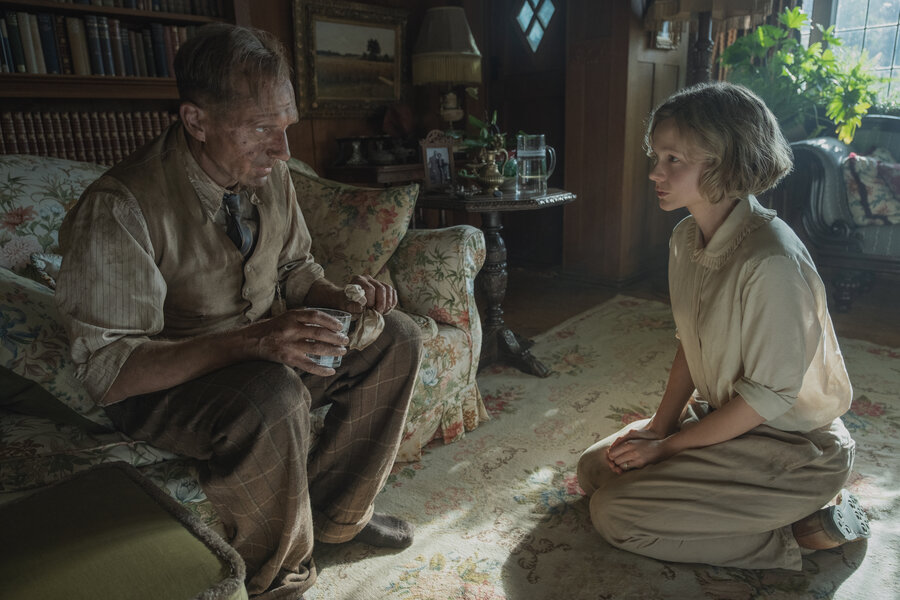Edith Pretty has always supposed there may be gold in them there hills. Or artifacts, anyway, something of historical value. And so widowed Mrs. Pretty (Carey Mulligan) engages a disgruntled excavator away from a museum that undervalues him and underpays him. Basil Brown (Ralph Fiennes) digs right in, but what he finds is of far more significance than anyone had dared imagine.
Vexingly, the minute the dig turns up anything of real value, the British Museum and “the man” come sniffing, looking to take credit and ownership. They also take over the dig although no one wanted anything to do with it when it was just a housewife with a hilly backyard; Edith has up until now been self-financing the work.
The 1938 excavation of Sutton Hoo was of course historically significant and netted many revelatory precious artifacts. But for the real people involved, it was a time of personal significance as well. A war is looming. A young boy is without a father. A young woman learns she is not in love with her husband. An old man bonds with a child who isn’t his. A mother learns she will leave her son an orphan. And everyone fights to protect “their” treasure = from the air raids, and the thieves, and the damn greedy bastards. Though history won’t recognize them, Netflix will, assembling a first-rate cast with stand-out performances from Mulligan, Fiennes, and Lily James.
Director Simon Stone’s pacing is exquisite, unfurling a film that is languorous and poetic, unhurried and revealing, with just a tinge of melancholy lingering about the beautiful English countryside. The Dig made me think a lot about legacy – how the people who buried this ship and its treasures left a remarkable historical record for us to find, and in finding it, Edith Pretty et. al became a part of that record too. In some ways, even this film becomes part of this record, dating all the way back to the 6th Century. Of course, our own culture is so materialistic we’d never leave buried anything of great value. If the future isn’t digital, we won’t have left much of an impression, just piles of Chinese plastic. This is why we have such a fascination with archeology; we want to understand our ancestors, to know from whence we come. We’re less adept at telling who we are, and we collectively lack the ability to understand that we, too, might someday be reduced to a few artifacts in a museum. Hubris. It’s a condition of humanity, I suppose, and a film like this, though pretty and competently made, is hardly an adequate defense. In fact, while I found plenty to like about The Dig, it fell short of love, never quite stirring sentiment in the way it clearly expected it would.


Mrs ForTheDeaf and I watched this last night. Beautiful film. We both wept at different points for personal reasons and we concluded that Voldemort is forgiven on the strength of humanity displayed in this performance alone. A wonderful film.
LikeLike
Jay, thanks for bringing this movie to my attention. I’ve always admired the work of Ralph Fiennes, so I look forward to watching him in action again.
LikeLike
Lulu: “I would watch a movie about digging, but I would rather go out in the yard and do it myself.”
LikeLike
Looking forward to this. Thanks, Jay.
LikeLike
Of course as soon as she found something of value, they’d take it away…
LikeLike
Adding this to my Netflix watch list.
LikeLike